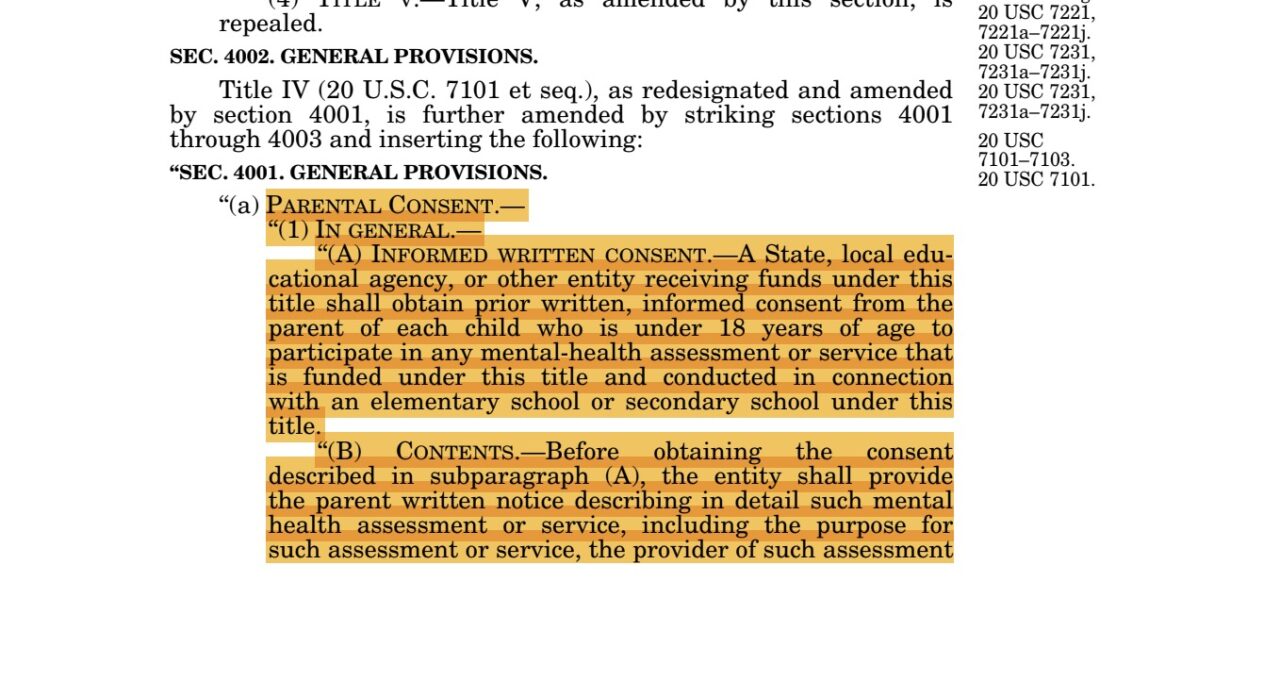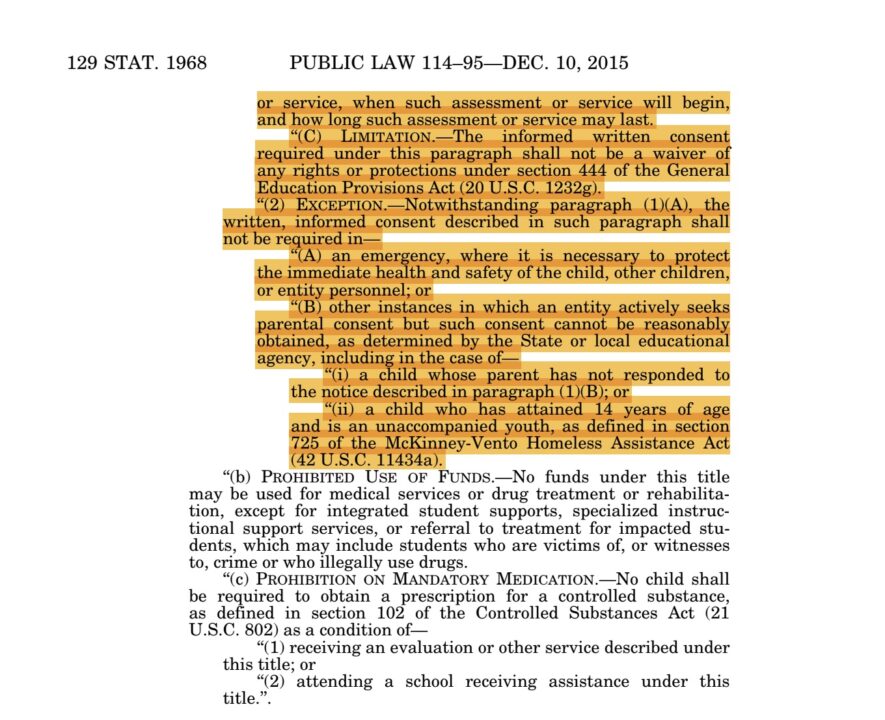Nancy Bailey wrote an article about the dark side of Social and Emotional Learning. I would suggest that everyone carefully read this article to understand that SEL is much more than just emotional support provided to your child in class.
Bailey says,
“Good teachers have always built social skills into their classes. Helping children behave and work with each other is second nature to teaching. One can find nice social-emotional learning (SEL) activities.”
So why should anyone be concerned?
She goes on to say, “But now states are setting up SEL standards about what children should think and feel. How does one standardize such things?”
Bailey lists the problems she sees with the new fad of Social and Emotional Learning in the classroom. I will list some of them here:
*SEL is ill-defined, unproven and still connected to Common Core.
*SEL standards involve too much introspection for children.
*If SEL seems like character education it’s because it is.
*SEL and psychological profiling.
*Tracking children’s behavior with SEL
*SEL is about raising test scores.
*SEL and Social Impact Bonds and Pay for Success
School districts are encouraged to use SIBs or Pay for Success to fund programs. Schools get money for students based on their social and emotional skills. Upon student improvement, companies get back their contribution with a profit.
For example, SEL is listed in the U.S. Department of Education (DeVos) Pay for Success Feasibility Tool Kit: Considerations for State and Local Leaders to increase kindergarten readiness (p.6).
*SEL is insulting to parents.
I left her commentary under SEL and Social Impact Bonds and Pay for Success. Most people have no idea that Wall Street investors can make a profit off of your child’s mental health data. I would suggest clicking on this link to read all of her commentary under each problem listed.
Now that you can see that SEL is a way to psychologically profile your children, why would they do that? Emily Talmage explains that here.
When the Elementary and Secondary Education Act – now called ESSA – was reauthorized in 2015, a provision was included encouraging states to include non-academic performance measures in their accountability plans.
“[The] law calls for … a shifting away from the narrow focus on academics,” explained Ulrich Boser, author of “Learning Mindsets and Skills: An Opportunity for Growth with the Every Student Succeeds Act,” in an article in NEA Today.
Did you note that the federal law ESSA calls for “shifting away from the narrow focus on academics?”
As I receive calls from concerned parents that their children are not learning much in school, they now can see where this is all coming from. This is going on in all public schools across New Hampshire.
Talmage goes on to report:
“Nationwide, the drive to promote and standardized “social and emotional learning” outcomes is being driven by the Collaborative for Academic, Social, and Emotional Learning (CASEL). Led by Timothy Shriver of the Aspen Institute (another organization heavily promoting social impact bonds), CASEL recently made headlines when a high-profile academic, Angela Duckworth, pulled out of its multi-district experiment in promoting “social-emotional” learning.”
MUST SEE :WATCH THIS SHORT VIDEO: https://www.youtube.com/watch?v=DG6VHlrCBLk
Duckworth rightfully states:
“you simply can’t measure character development in the same way that you can measure how many multiple-choice math questions a student gets right. The former is by definition subjective, relying on self-reported surveys that can read like Cosmopolitan quizzes: “I often set a goal but later choose to pursue a different one.” I took the three-question sample quiz on the New York Times website and was deemed “somewhat gritty”; on my second go-round, I judged myself a bit more generously and was rewarded with an “extremely gritty” score.”
Let’s be honest here, public schools are dabbling in the mental health field using uneducated and unqualified teachers and counselors. The mental health of children should only be addressed by educated and licensed Ph.D. level Child Psychologists. They have the education, training and must follow a Code of Ethics that requires them to keep parents informed and seek their consent to assess and treat your child.
That is why this article was published on the National Pulse: Psychological Profiling Ramping Up and Parents Have No Idea. Education Researchers know what’s behind SEL. It’s not just a way to support your child in the classroom, it’s about gathering mental health data to build a psychological profile on them. This is to be done by school personnel that do not have the education or qualifications to address mental health in children.
Now that U.S. Attorney Merrick Garland has weaponized the FBI to go after parents who are speaking up at school board meetings, it’s interesting to note that his son-in-law, Xan Tanner, is the co-founder and Director of Panorama. Panorama is an EdTech company selling SEL products to schools with unsuspecting parents who have no idea what SEL is all about. It sure makes you think about why the Feds are bringing the hammer down on parents who are exposing this shift away from academics in the classroom.
Garland’s daughter, Rebecca Garland, attended the private and elite Sidwell school in Washington D.C. This prestigious private school helped pave her way to attend Yale and Harvard. Academics were a priority in her elite private school, but I suppose for the children who attend public schools, they will just have to suffer.
Who’s looking out for your children? Just look at how quickly your school administrators implemented all of this in your public school. If you don’t look out for your children, it’s pretty clear, they won’t.
This is negatively impacting how your children are taught in the classroom.
In “New Vision for Education,” they say:
Another strategy for developing SEL at school is through specific teaching practices, such as project-based learning, inquiry-based learning, and classroom discussions. These teaching practices require students to work in groups and use social and emotional skills as they discuss a topic, listen to one another solve a problem or make choices about their own learning. The Buck Institute for Education’s model of project-based learning, for example, helps teachers make learning highly engaging and developmentally appropriate for secondary school students. Its programs focus on group projects, in which students collaborate to meet deadlines, present information, think critically, use technology and solve problems. http://www3.weforum.org/docs/WEF_New_Vision_for_Education.pdf
Now read:
This is just another setup for failure for children who are subjected to SEL.
Finally, federal law requires informed parental consent when educators or staff assess or treat your child’s mental health. If they are assessing your child via SEL, then they need your informed consent, which I personally would never give them. If you do not consent, then it’s important to file a complaint with the New Hampshire Department of Education for violating federal law if you have not consented SEL assessments or treatment.
Schools have an obligation to students and their families to protect the privacy of the information collected in the educational setting. The mental-health information teachers are now obtaining, storing and tracking with tools like the Devereux test is equally as sensitive as that which is collected in a pediatrician’s office. It deserves the same protections.


